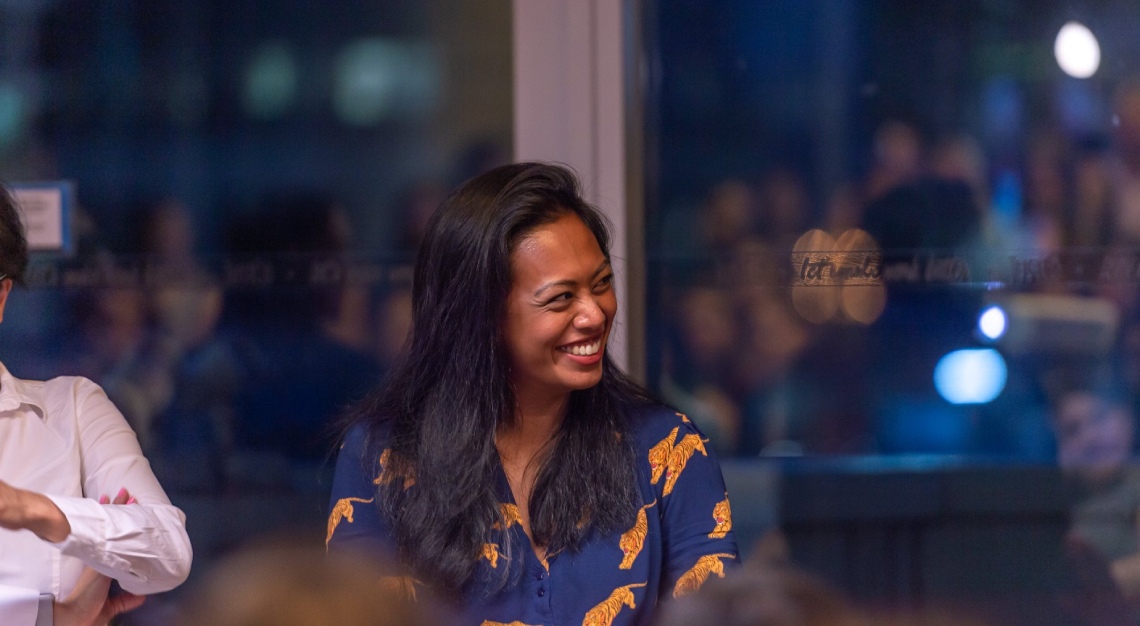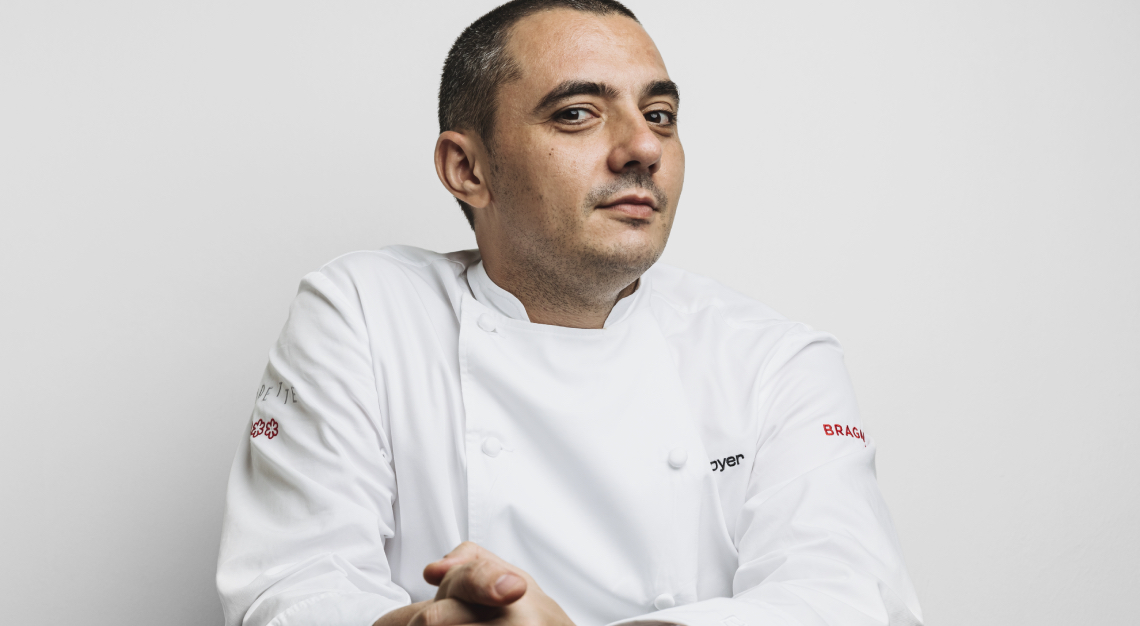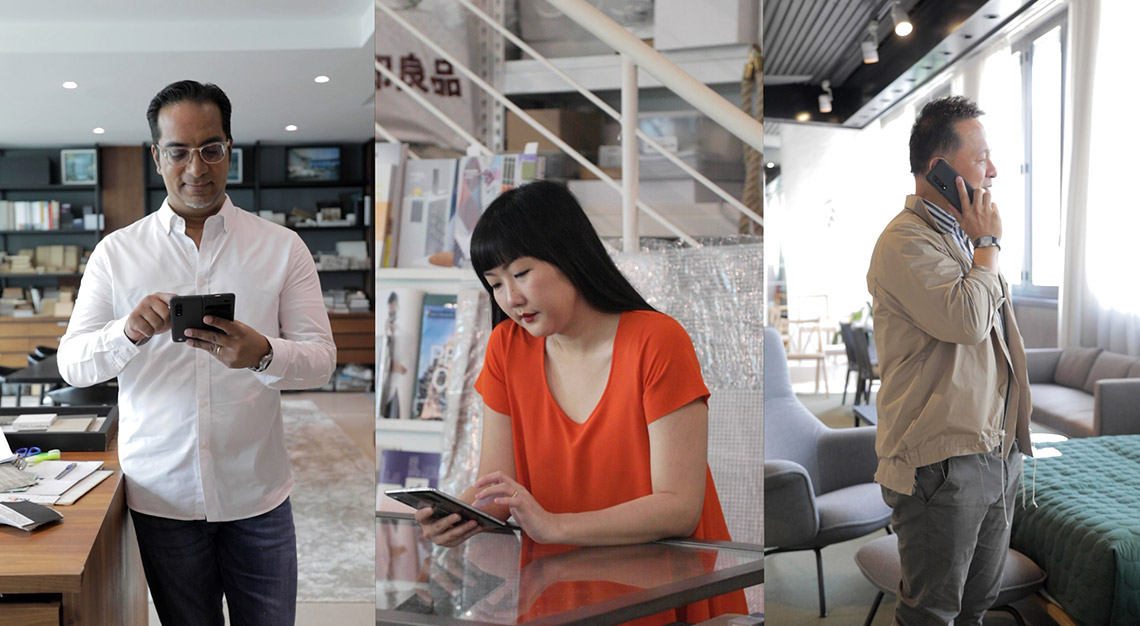The Female Gaze spotlights female bosses empowering their respective industries. This week, we talk to Meera Jane Navaratnam from SheSays about feminism in the corporate world
The impression one gets of Meera Jane Navaratnam is almost akin to a good glass of Whisky. Serious yet warm; focused, with a sass that leaves a good burn. Through the 16” screen of my laptop, she fixes me with a smile and apologises for being late.
Slightly frazzled, she talks about the busy morning she’s had, and I nod empathetically. But even without the explanation of client meetings and event planning, a glance at her LinkedIn profile will easily explain why Navaratnam is so busy: Growth and strategy at ?WhatIf! Innovation, Accenture and SheSays Singaapore. Talk about a busy woman.
By her own admission, she is very much focused and action oriented. “You know, like ‘What’s the action plan?’” It’s complementary to the personality of SheSays co-founder, Vicky Chen. According to Navaratnam, she’s empathetic and warm. “A great listening ear.”

As Navaratnam talks with impassioned vigour about her work at SheSays, dropping statistics off the top of her head, I wonder if she’s always been so passionate. The work she does at SheSays is admirable – connecting women, driving discourse about sexism, re-examining the relationship between gender and the corporate world. But I also want to hear about her. I prompt her a little bit, urging her to move from statistics to personal experience.
“Ah,” she says, shaking her head almost incredulously. She launches into a story about how she had placed ‘outspoken feminist’ at the end of a corporate bio. In response, the recruiter told her, “I’m sorry, but I’m going to have to take out ‘outspoken feminist’ because it seems too aggressive and unnecessary. I’m really grateful you have an opinion, but you should just keep that too.”
My eyebrows rise in disbelief.
“Ha, yeah,” she deadpans, “That was fun.”
In the corporate world, the image of feminism still evokes an image of brute force and aggression, a man-hating unwillingness to collaborate.
But feminism to Navaratnam is different – and that’s probably because of how she’s grown up, surrounded by women who believed in the “importance of giving”. That is, empowering women and amplifying voices of allies. Between the ages of nine to 14, these were the women who she was exposed to.
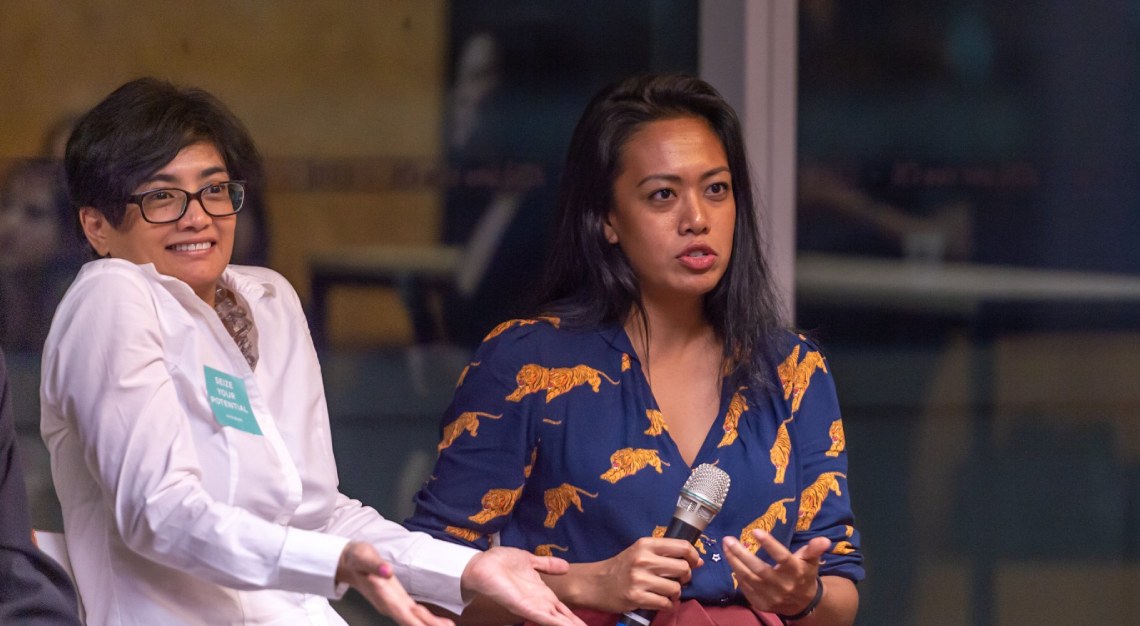
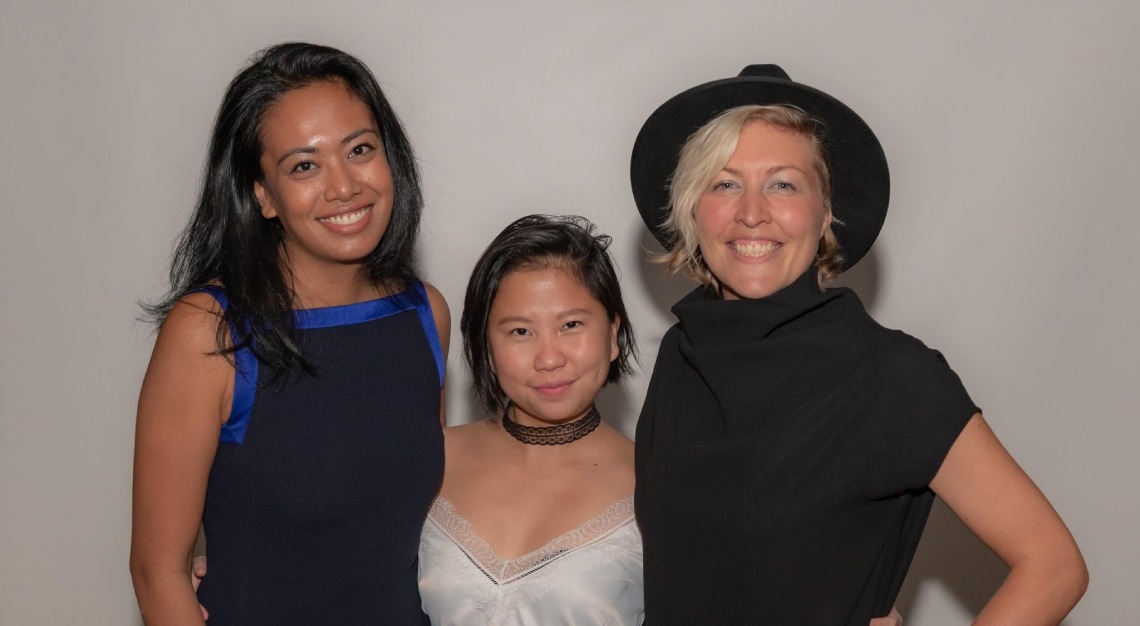
The details of dinners with these women have lasted this whole time – well-decorated dining tables, monstrous bookcases, a living room full of feminists. No, not the baseball bat-wielding ones who are determined not to cooperate. “Lawyers, writers, doctors,” she lists. “Wives, girlfriends, mothers.”
She gets teary-eyed talking about it. “In Singapore, I was always told that you need to behave a certain way, you need to marry a certain type, go to certain schools. But no one ever listened to what you wanted as a human and as a woman. But with those women, I felt confident knowing that you didn’t need to be accepted completely, as long as you could be who you are.”
That comfort in space, that openness in discourse – it seems like this is exactly the kind of thinking that drives SheSays. SheSays, much like Navaratnam herself, seems to be driven by an innate belief in discourse. Despite the goal of empowering women, the team actively seeks male diversity in the female panels. The hope is to open the conversation and draw in allies.
As feminism continues to make headway all over the world, it’s organisations like SheSays that actively reshape how we view what feminism means and what having feminists in the corporate world looks like. It’s not about being overly aggressive or spiteful. It’s something better.
It’s about being unafraid to take up space.
